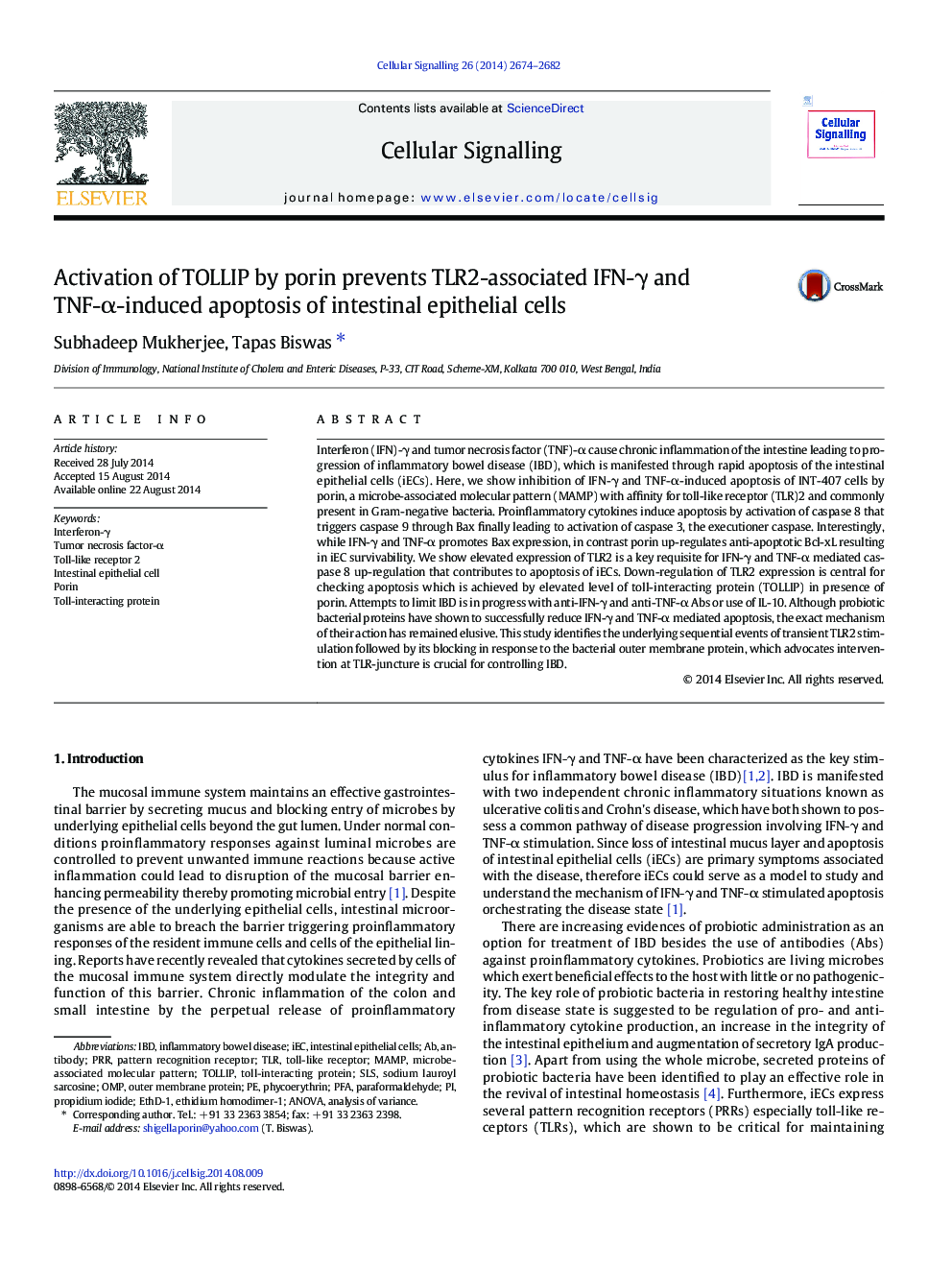| Article ID | Journal | Published Year | Pages | File Type |
|---|---|---|---|---|
| 10814902 | Cellular Signalling | 2014 | 9 Pages |
Abstract
Interferon (IFN)-γ and tumor necrosis factor (TNF)-α cause chronic inflammation of the intestine leading to progression of inflammatory bowel disease (IBD), which is manifested through rapid apoptosis of the intestinal epithelial cells (iECs). Here, we show inhibition of IFN-γ and TNF-α-induced apoptosis of INT-407 cells by porin, a microbe-associated molecular pattern (MAMP) with affinity for toll-like receptor (TLR)2 and commonly present in Gram-negative bacteria. Proinflammatory cytokines induce apoptosis by activation of caspase 8 that triggers caspase 9 through Bax finally leading to activation of caspase 3, the executioner caspase. Interestingly, while IFN-γ and TNF-α promotes Bax expression, in contrast porin up-regulates anti-apoptotic Bcl-xL resulting in iEC survivability. We show elevated expression of TLR2 is a key requisite for IFN-γ and TNF-α mediated caspase 8 up-regulation that contributes to apoptosis of iECs. Down-regulation of TLR2 expression is central for checking apoptosis which is achieved by elevated level of toll-interacting protein (TOLLIP) in presence of porin. Attempts to limit IBD is in progress with anti-IFN-γ and anti-TNF-α Abs or use of IL-10. Although probiotic bacterial proteins have shown to successfully reduce IFN-γ and TNF-α mediated apoptosis, the exact mechanism of their action has remained elusive. This study identifies the underlying sequential events of transient TLR2 stimulation followed by its blocking in response to the bacterial outer membrane protein, which advocates intervention at TLR-juncture is crucial for controlling IBD.
Keywords
SLSEthD-1PRRIBDOMPTLRPFAethidium homodimer-1Microbe-associated molecular patterninterferon-γInflammatory bowel diseaseanalysis of varianceANOVAtumor necrosis factor-αToll-like receptorTollipintestinal epithelial cellIntestinal epithelial cellsphycoerythrinMAMPAntibodyparaformaldehydetoll-interacting proteinOuter membrane proteinPropidium iodidePorinIECToll-like receptor 2pattern recognition receptor
Related Topics
Life Sciences
Biochemistry, Genetics and Molecular Biology
Biochemistry
Authors
Subhadeep Mukherjee, Tapas Biswas,
